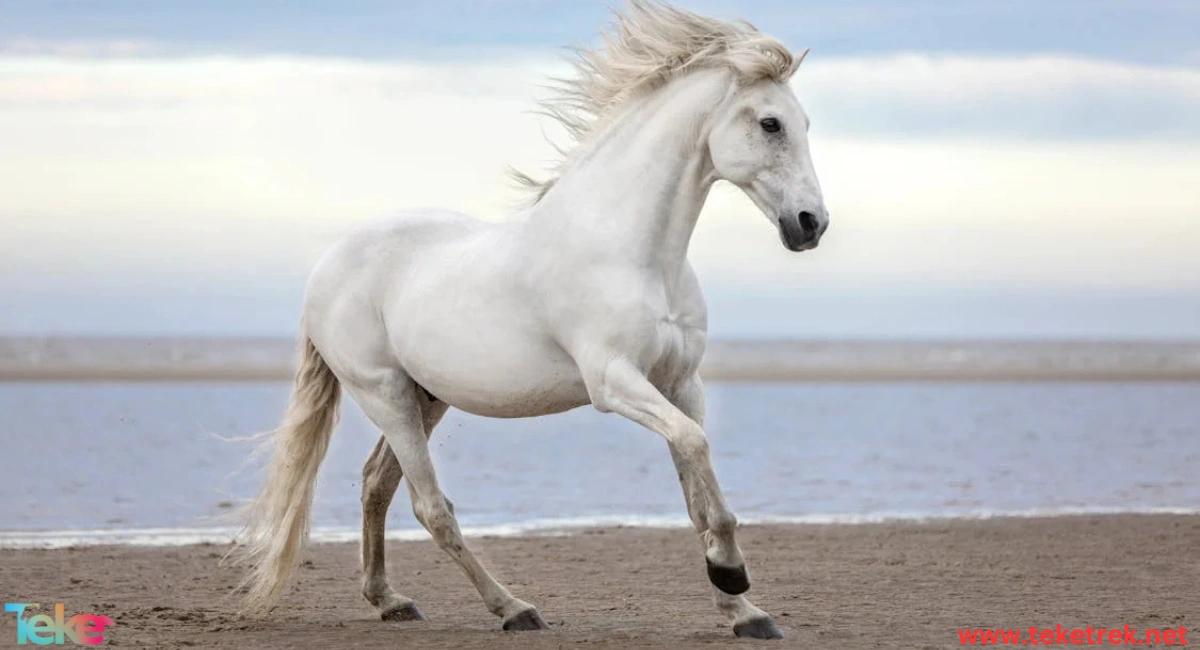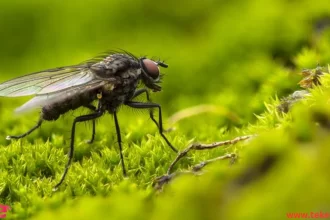The origin of the Camargue horse dates back thousands of years, with this type of horse descending from a semi-wild breed that roams the salt marshes and plains.
Let’s learn more about it from teketrek.

The camargue horse facts
The Camargue horse is known for its great popularity, attributed to its gentle temperament, refined taste, and distinctive calm nature.
Breeding of the Camargue horse has been encouraged by many emperors and kings, such as the famous Roman king and Napoleon who made it a part of his brave fighting army.
The Camargue horse grazes for 22 hours a day when food is scarce, but when food is plentiful, they graze at dawn and dusk.
Despite its small size, the Camargue horse has a great ability to carry adults and heavy riders.
The Camargue horse is strong and intelligent, used in cattle management, equestrian games, dressage, and long-distance riding.
Camargue horses often stand for hours in water or marshy areas while grazing, with their feet evolving to perfectly adapt to their environment.
An interesting fact about the Camargue horse is that it is immune to mosquitoes, which is beneficial considering its natural habitat.
Camargue horses are bred and cared for by living a semi-wild lifestyle under the supervision of a shepherd or guardian.
They are also used for riding along the marshes on the beach.
Riding a Camargue horse is beneficial for beginners, children, and adults
The Camargue horse specification
The body: The Camargue horse has a strong, sturdy body with endurance and vitality.
The color: The color of the Camargue horse is very beautiful, ranging from gray to brown, adding unmatched elegance and beauty to the horse.
The Camargue horse height: The height of the Camargue horse ranges from 1.35 meters to 1.45 meters.
The weight: with a weight ranging from 300 kg to 400 kg.
The head: The head of the Camargue horse is heavy and square-shaped with a short neck and thick mane.
The legs: The legs of the Camargue horse are very strong and uniquely end in hooves that can withstand moisture much better than other horses.
Age: Camargue horses live between 20 and 25 years, being immune to pests in the area, notably mosquitoes. These strong horses are usually healthy and immune to horse diseases.
Origin and Habitat of the Camargue Horse:
The Camargue horse originated in the Camargue region of France, although the exact origins of this breed remain relatively unknown.
It is generally considered one of the oldest horse breeds in the world, having lived for centuries or possibly thousands of years.
These small horses have lived a wild life in the harsh environment of the Camargue marshes and wetlands in the Rhone Delta.
Camargue horses live in semi-wild conditions, with foals being brought in for training at around three or four years old.
The guardians take their time to earn the trust of the young ones.
Where can Camargue horses be found?
Camargue horses live in Southern France, where they are bred and selected to obtain true approval in the national studbook.
Some horses live throughout Europe, primarily in Spain and Italy
Camargue horses feed on tall reeds and samphire, a type of local plant. In winter, these strong horses eat dry grass and goosefoot
The mating process of Camargue horses occurs freely without any human intervention from April to July.
The foals of the Camargue horse are born with black or dark gray color, with a white blaze on the forehead (most of the time) until they are about 6 months old.
After a while, the foal starts shedding its birth coat to become white in color at around seven or five years old, and they are taken to the stable at three or four years old.
Are Camargue horses considered endangered?
Currently, the Camargue horse is not considered endangered, thanks to conservation efforts in the Camargue region. These efforts include habitat preservation and strict breeding programs to maintain the genetic purity of the breed.
This breed of Camargue horses has a stable population, with several hundred horses living in semi-wild conditions in the Camargue, and more in breeding programs.
The Camargue horse remains a symbol of natural beauty in Southern France, with ongoing initiatives to ensure its preservation for future generations.

FAQs about Camargue horses
Are Camargue horses considered endangered ?
This breed of Camargue horse has a stable population, with several hundred horses living in semi-feral conditions in the Camargue, and more in domestication.
The Camargue horse remains a symbol of the wild and natural beauty of southern France, with ongoing initiatives to ensure its preservation for future generations.
What are Camargue horses known for?
They are known for their ability to navigate rough terrain, making them suitable for trails and endurance.
Can Camargue horses jump?
Yes, it can jump and is suitable for various equestrian arts including: (dressage, driving, show jumping).
In conclusion, we can say that the Camargue horse is wonderfully designed and easy to care for as it tends to cattle and possesses a natural sense of organization.
When visiting the National Park of Camargue, we will see many herds of this loyal breed of horses that love to interact with humans constantly.
References
Wikipedia





